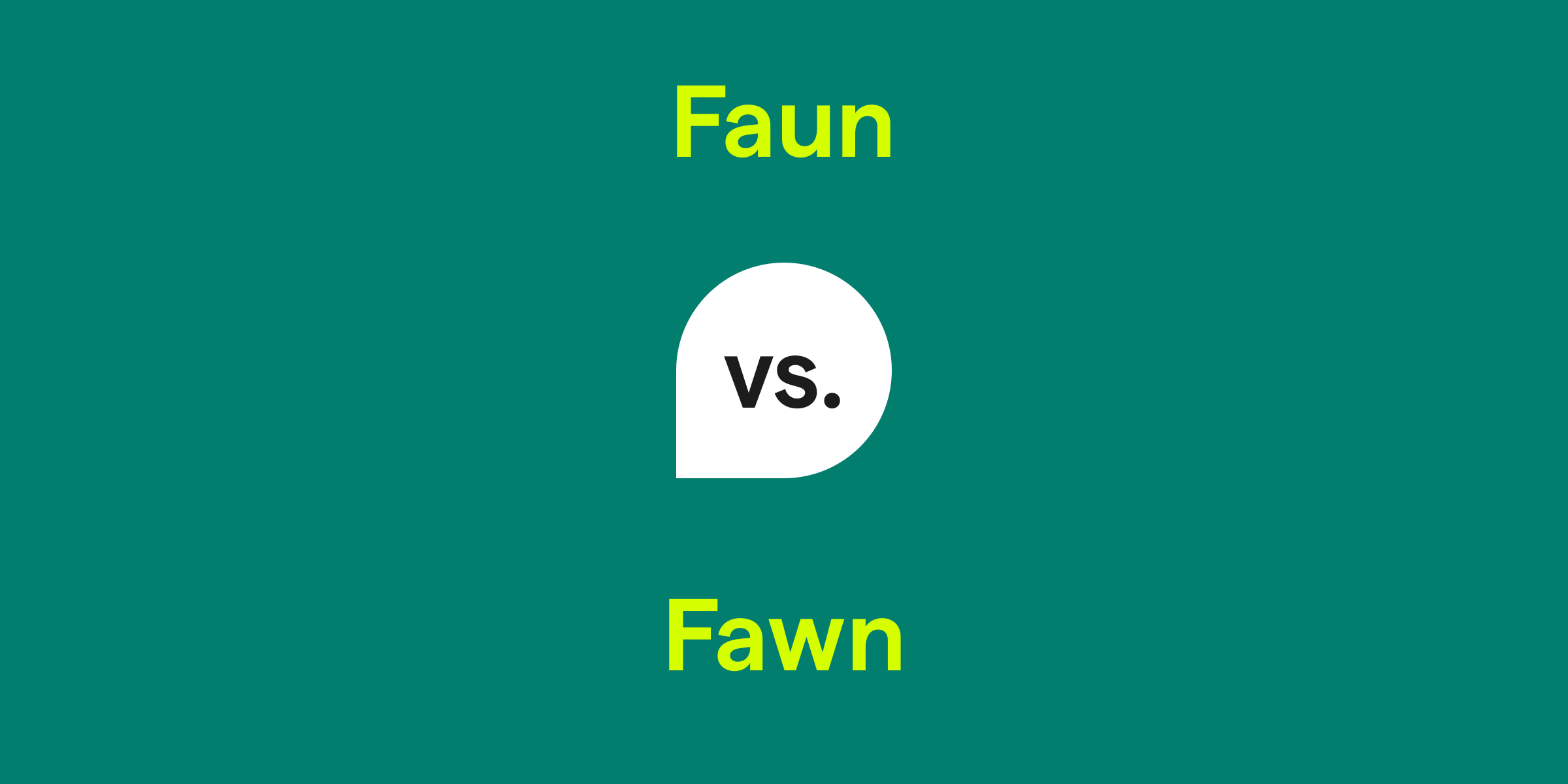Faun vs. Fawn: What's the Difference?
A faun is a mythological half-human, half-goat creature associated with Roman mythology, often depicted as playful and having a connection with nature. On the other hand, a fawn is a young deer, typically still in its spots, symbolizing innocence and new beginnings in the animal kingdom. The primary context for each word is distinct: faun occurs in discussions of mythology and folklore, while fawn is used in conversations about wildlife and nature.

How do you use the word faun in a sentence?
The word faun is used when referring to the classic figures in mythological stories, known for their mischievous charm and association with nature. When mentioning a faun, one might be telling a story from olden mythology, describing artistic representations, or using the concept metaphorically to portray a connection to the natural and the whimsical.
Examples of faun in a sentence
- In the ancient grove, the statue of a faun played on his pan flute to the imagined tune of the wind.
- She described her dream where a faun guided her through an emerald forest to find a hidden spring.
- The festival had performers dressed as fauns and nymphs, creating a magical tableau that mesmerized the audience.
How do you use the word fawn in a sentence?
The word fawn is typically used when talking about young deer, often highlighting their vulnerability or youthfulness. One may use the term when describing encounters with wildlife, discussing the growth stages of deer, or when expressing the endearing qualities of young animals.
Examples of fawn in a sentence
- A gentle fawn peeked out from the underbrush, its eyes wide with wary curiosity.
- During our hike through the national park, we were lucky enough to spot a fawn grazing nearby.
- The wildlife sanctuary is dedicated to rehabilitating injured animals, such as orphaned fawns, before returning them to the wild.
Faun and fawn definition, parts of speech, and pronunciation
Faun definition:
A faun is a mythical being from Roman mythology with the body of a man and the legs and horns of a goat, often associated with forests and pastoral scenes.
Faun parts of speech:
Faun pronunciation:
Faun is pronounced as /fɔːn/.
Fawn definition:
A fawn is a young deer in its first year of life, especially before it loses its spots.
Fawn parts of speech:
Fawn pronunciation:
Fawn is pronounced as /fɔːn/.
A faun is a mythical being from Roman mythology with the body of a man and the legs and horns of a goat, often associated with forests and pastoral scenes.
Faun parts of speech:
- As a noun: The parade float featured a faun dancing amidst artificial trees and flowers.
Faun pronunciation:
Faun is pronounced as /fɔːn/.
Fawn definition:
A fawn is a young deer in its first year of life, especially before it loses its spots.
Fawn parts of speech:
- As a noun: The newborn fawn nestled close to its mother in the tall grass.
Fawn pronunciation:
Fawn is pronounced as /fɔːn/.
Faun vs. fawn in a nutshell
In summary, faun and fawn are distinguished by their vastly different contexts within language and culture. A faun is a creature of mythology, combining human and goat characteristics, revered in tales and art. In contrast, a fawn refers to a real-life young deer, often spotted and observed in nature. While they share a similar pronunciation, their meanings and uses are unique, one rooted in fable and the other in the animal realm.
Get AI Writing Assistance Wherever You Type
Make sure your vocabulary is on point and every punctuation mark is in the right place, no matter where you’re working. Grammarly works across more than 1 million websites and apps so you can improve your writing without copying, pasting, or breaking focus.

More Commonly Confused Words
Interest piqued? Pore (not pour) over other commonly confused words to help your writing reach peak (not peek) performance.